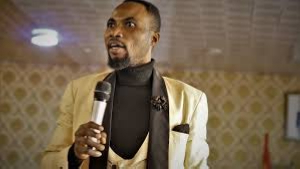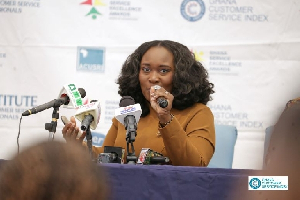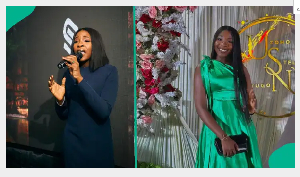Opinions of Thursday, 7 February 2013
Columnist: Badu, K.
Ghanaian Chiefs Still Living In The World of Neanderthals?
“In Ghana, chieftaincy stands as an important institution in governance. Although chieftaincy is a contested heritage in Ghana, it nonetheless has its appeal: for the country, it is a way to define our identity as a nation; for the people it is the only institution left to look up to when the national bureaucratic structures have let them down; and for the elite, chieftaincy legitimizes their social positions by establishing or widening their access to the state while the ‘modern’ power holders attempt to utilize what is perceived as traditional legitimacy for their own ends. Given this convoluted transactions, chieftaincy will remain a very important part of Ghanaian governance for a long time to come” (‘WE ARE THE PEOPLE’: GHANAIAN CHIEFS AND THE POLITICS OF CONTESTATION).
The Chiefs ultimate role
“The Chiefs are responsible for the daily administration of the traditional area for its advancement and the growth of its inhabitants. The chiefs ultimate function is the maintenance of law and order as a prerequisite for the growth of the community, and the advancement of the people in all spheres of life” (Odotei, 2010).
That said, Article 270 (1) of the 1992 constitution guarantees “The institution of chieftaincy, together with its traditional councils as established by customary law and usage. Based on the preceding, one can asseverate that the establishment of the Chieftaincy ministry was not due to our politician’s insatiable craving for attention, or metastasizing, but because of the manifesting relevance of the chieftaincy in our nation building. Besotting in the minds of many discerning Ghanaians though, is the strict adherence to some ‘antiquated’ traditions by our matured and pragmatic Chiefs.
For example, it is befuddling to many discerning Ghanaians that the nomination of the minister designate for chieftaincy ministry, Dr. Danaa, who happens to be visually impaired, has extremely incensed some benighted chiefs who are still holding on to some eccentric cultural beliefs;(see: “More Chiefs oppose Dr. Danaa's nomination as Chieftaincy Minister”; myjoyonline.com/ghanaweb.com, 06/02/2013).
“Seikwahene Nana Kwaku Dwomo Ankoana II was the first to protest Dr. Danaa’s nomination publicly, saying it was an abomination to choose a physically-challenged person to interact between government and chiefs.”
“Nana Yeboah Asuamah III of Berekum Traditional area, told Adom News he did not doubt the competence of Dr. Danaa, but to the extent that all institutions in the country have different criteria for recruiting human resource, it was also necessary for the president to have recognized that the various traditional areas in the country have diverse cultures regarding what different categories of persons are allowed and or not allowed to do.”
“He noted that in the security services, for instance, people of a certain height cannot be recruited, so if the police refused to recruit competent short person, or persons suffering from stunted growth, that could not be described as discrimination.”
“It is the just rules in the security services and no one is raising any objection to that but when chiefs say they are required by tradition not to allow persons living with disability into their palaces then we are accused of discriminating against such persons,” he said.
“On his part, Barima Takyie Abiam, Offinso Ampabamhene lauded President John Mahama for his all-inclusive approach to recruiting people into government but pointed out that the chiefs are required by tradition to keep certain persons off their palaces and that cannot be tampered with.”
He said “the National House of Chiefs (NHC) may have announced their acceptance of Dr. Danaa’s nomination, but there are several chiefs across the country, who may not be members of the NHC but have their own traditions to protect.”
“Some of us are bound by very strong traditions not to deal directly with persons living with disability so it would be difficult to allow this imposition even if the NHC agrees to work with Dr. Danaa,” he said.
Barima Takyie Abiam said “he also does not doubt the competence of Dr. Danaa, but the President could have appointed him to any other ministry, or precisely to a ministry where he would see to the affairs of disabled persons instead of interacting with chiefs and traditional leaders.”
In fact, it is puzzling to see the chiefs whose role within the society includes promotion of social cohesion are ignobly indulging in stereotyping, because of their beliefs in some outmoded traditions. But, do you blame them? I only feel sorry for them, because they, the supposedly transcendent chiefs, have not overcome their ‘benightedness’, hence sticking to some dowdy traditions.
We hear in the time past, the severed ‘heads’ of subjects accompanied deceased chiefs to their resting place, nevertheless such quaint practice has been abolished. So, to our discriminatory chiefs: ‘why did you stop such idiosyncratic practice, nonetheless still holding on to the view that it is abominable to come into contact with a disabled person? It would also be appreciated if our chiefs can tell us, in the event that a chief happens to give birth to ‘a disabled child, what would happen? Would they carry out infanticide? I mean they would end the life of the disabled child? In a similar anecdote, what if a chief accidentally becomes disabled? Would he dethrone himself? Some dowdy traditions indeed.
The benighted chiefs must remember that disabilities can be permanent, temporary, or episodic. That is, disabilities can affect people from birth, or could be acquired later in life through injury or illness.
The World Health Organisation (WHO), for instance, estimates that approximately 650 million people, or about 10% of the world’s population, have a disability. In the same vein, the disability welfare groups in Ghana estimate that there are between 7-10% PWDs, representing about 1.55-2.2 million people. Clearly, then, it is inexcusable for the transcendent chiefs to sideline the disabled in the name of outmoded traditions. As a matter of fact, one does not become disabled volitionally or chooses to have no eyesight for instance, so why the stigmatization?
The 1992 constitution of Ghana, under Article 29(4) stipulates that disabled persons shall be protected against all exploitations, all regulations and all discriminations and abusive or degrading nature, yet the framework has not helped to mollify the discrimination being faced by disable people. Needless to say, the Parliament of Ghana enacted the Disability Discrimination Act in 2006, yet its full implementation is yet to be seen.
For if not the listless resignation of our politicians in the implementation of the 2006 ‘DDA’ Act, the discriminatory chiefs would have been dragged to the law courts on the grounds of discriminating against a disabled person. For instance, the 2006 Disability Discrimination Act incorporates 12 main objectives; some of these would seek to create an enabling environment for the full participation of PWDs in national development; to facilitate the employment of PWDs in all sectors of the economy. In any case, the blame must be directed squarely at the doorsteps of our languid politicians for failing to implement such an important Act.
The seemingly discriminatory chiefs must not lose sight of the fact that ‘disability does not mean inability’. Of course, if competent disabled people like Dr. Danaa are given the opportunity, most of them can work effectively. For someone may not have a leg to walk; an eye to see; a hand to lift objects etc. nonetheless, might still have subtle mind, and can contribute meaningfully to the society. In this regard, does it make sense to alienate competent disabled people because of some strange cultural beliefs?
K. Badu, UK.














